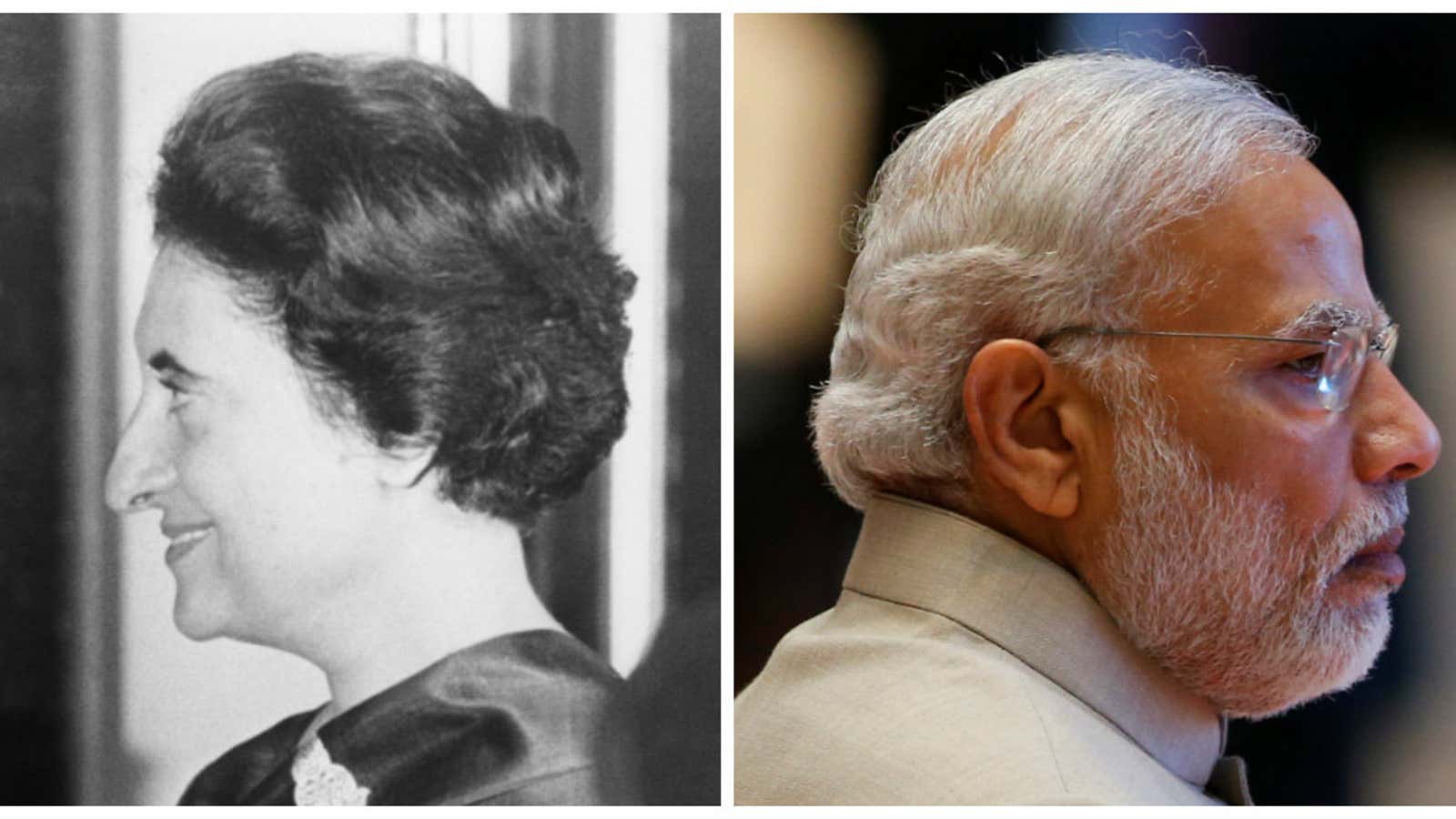You know it’s silly season when people start muddling up identities, comparing two dissimilar events and equating themselves with great historical figures. And you know this whole thing is straying into nutty zone when the ease of comparison trumps traditional ideological divides.
Uma Bharati, India’s water resources minister, recently claimed that prime minister Narendra Modi’s economic policy actions (especially the demonetisation scheme) were consistent with Karl Marx’s ideology. “The truth is the prime minister is executing what Marx always advocated,” Bharati asserted rather breezily in a recent interview with The Economic Times newspaper.
This suggested convergence of Marxist economics and Modi’s policy does not carry even a trace of irony or hint of sarcasm. It also seems to lobotomise the bitter philosophical and political antagonism between the Hindu nationalist Bharatiya Janata Party and the Indian Left parties, currently playing out through the students of New Delhi’s Jawaharlal Nehru University.
Taken at face value, Bharati’s statement seeks to prise out crucial electoral space from the Left parties that has traditionally eluded the BJP; her equivalence stems from the idea that both Marx and Modi seek equality and want to eradicate disparity. This is not the first time Bharati has tiptoed into enemy territory: “I am in the BJP, but ideologically I am a Leftist,” she reportedly said according to India Today.
This blurring of sharp lines between political opposites has been taking many curious twists.
Demonetisation was part of a grand “cultural revolution” being choreographed by Modi, the BJP’s minister for urban development and information and broadcasting, M Venkaiah Naidu, wrote in an Op-Ed on Nov. 29. There are three ways of vivisecting Naidu’s poker-faced assertion.
One is to assume that the minister is using the historical allusion with full knowledge of the barbarity and societal upheaval that accompanied the Cultural Revolution in China. Two, this is his Shilpa Shetty moment: the article has been ghost-written without him or the scribe really caring to check its authoritarian imprint. Three, Naidu is consciously seeking to divorce the term from its Chinese precedents and has used it bereft of its underlying significance.
Crossover in America
The line between the deep Right and the Left has been blurring for a while, especially in the US. Neo-conservatives, who occupied important positions within the Bush administration, were ironically considered as ideological descendants of Leon Trotsky, the communist theorist and prominent leader of the 1917 Russian Revolution. The neocons sought common cause with Trotskyites through their differentiated understanding of permanent revolution, world revolution or the withering away of the state.
The US has a long history of Left-wing firebrands moving to the Right; David Oppenheimer’s book Exit Right: The People Who Left the Left and Reshaped the American Century provides details of people who undertook the ideology-traversing journey and are still influencing political thought in the USA.
It should, therefore, come as no surprise that Steve Bannon, the alleged white supremacist and handpicked member of Donald Trump’s incoming administration, had supposedly declared himself a “Leninist” a few years ago. While Bannon does not remember the conversation, the possibility that such a declaration might exist has inspired many op-eds and articles.
Assuming the conversation did take place, Bannon presumably makes this leap of faith because he sees his desire to demolish the state congruent with Lenin’s vision, though there is a deep divergence over what comes thereafter. Bannon is executive director of brietbart.com, which gained infamy during the recent US presidential campaign for peddling half-truths and unwittingly helping “post-truth” become the word of the year.
Modi and Indira
Apart from Karl Marx, Modi has often been compared to other historical figures. Occasionally fawning acolytes have even rushed into cringe-land blithely: the new chief of Indian Council for Cultural Relations, Lokesh Chandra, called Modi a reincarnation of god and greater than even Mahatma Gandhi for adopting a practical approach to solving India’s social and economic problems.
The fact that 87-year-old Chandra was a lifelong loyalist of late prime minister Indira Gandhi and reportedly enjoyed close links to former Soviet Union leaders in an earlier life can be viewed either as an absurd incongruity or part of the same affliction that’s warping boundaries between the Right and Left.
Historian Ramchandra Guha recently compared Modi with Indira Gandhi herself. Despite the two leaders inhabiting conflicting political terrains, many overlapping points exist: the personality-driven politics, the authoritarian streaks, the high-decibel rhetoric of punishing the rich and eradicating poverty.
The opening pages of Sukumar Ray’s Bengali book of nonsensical stories, HaJaBaRaLa, describes how a man sleeping under the tree one summer afternoon suddenly finds his handkerchief transmogrified into a cat. Ray, father of renowned filmmaker Satyajit Ray, was influenced by Lewis Carroll’s idea of distorted reality. There is a similar shade of fantasy in Indian politics: What you see may not always be a true depiction of absolute reality.
We welcome your comments at ideas.india@qz.com.
